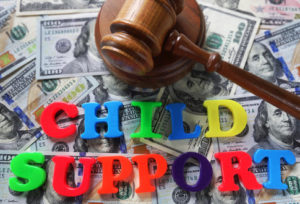What To Do If An Ex Is Not Paying Child Support In Houston

Child support is a substantial obstacle for many divorced couples. In many situations, child support issues can make difficult divorces even more stressful. Situations also have been known to arise long after a divorce when a non-custodial spouse decides to stop paying child support without an order that is issued by the court. When custodial parents face issues in which a former spouse decides to stop paying child support, a talented family law lawyer can prove essential in determining how to handle the nonpayment. In addition to the services a skilled lawyer, there are also some critical elements that parties must understand regarding situations in which a former spouse decides to stop providing child support.
Court Ordered Child Support Is Often A Better Idea Than An Informal Agreement
Clients frequently benefit from making sure that child support is court-ordered rather than informal agreement between former spouses. There are two reasons that such a formality is advantageous: these documents are able to maintain consistency over the years during which child support is required; and legal documentation also serves helpful in the event of nonpayment because a court can then require the non-supporting parent’s wages be garnished, the spouse’s driver’s license be suspended, or that the spouse be penalized in several other ways for failure to pay child support.
Penalties In The State Of Texas For Failure To Pay Child Support
Various penalties that may be assigned in the state of Texas to individuals who fail to pay child support include the following:
- Denial of government benefits.
- Denial of professional licenses.
- Driver’s license suspension.
- Garnishment of wages.
- Jail sentence.
- Liens placed against the non-support parent’s property.
- Probation.
How To Respond To A Spouse In Houston Who Stops Paying Child Support
One of the best ways that parents can respond to a former spouse who has stopped willfully paying child support is to file a Complaint for Contempt Of Court. There are some additional strategies that parents might wish to consider exercising in the event that another parent stops paying child support without a court order.
- Do Not Factor Child Support Into A Budget. By avoiding the calculation of child support into a monthly budget, an individual can make sure that there are adequate resources in the event that the child support payments stop.
- Do Not Try To Punish The Other Parent. In the event that a former spouse stops paying child support without a court order, many individuals decide to punish the spouse by preventing the parent from seeing the child. By allowing a former spouse to maintain contact with a child, however, individuals can make sure that the former spouse remains invested in the well being of the child. Not to mention, parents who withhold visitation rights might also face adverse consequences from the law.
- See If An Ex Can Pay Some. In many situations, the payment of less than the required amount of child support is better than no payment. If a former spouse is short on money or recently unemployed, ask if the ex can pay an amount that is smaller than the requested support payment.
How An Experienced Houston Divorce Lawyer Can Help
Emotions and financial stress can run particularly high when one spouse decides to stop paying child support. An experienced Houston family law lawyer at Lindamood & Robinson, P.C. can help clients navigate the obstacles that might arise when a spouse stops paying support.
Resource:
texaslawyergeneral.gov/faq/cs-parents-frequently-asked-questions
